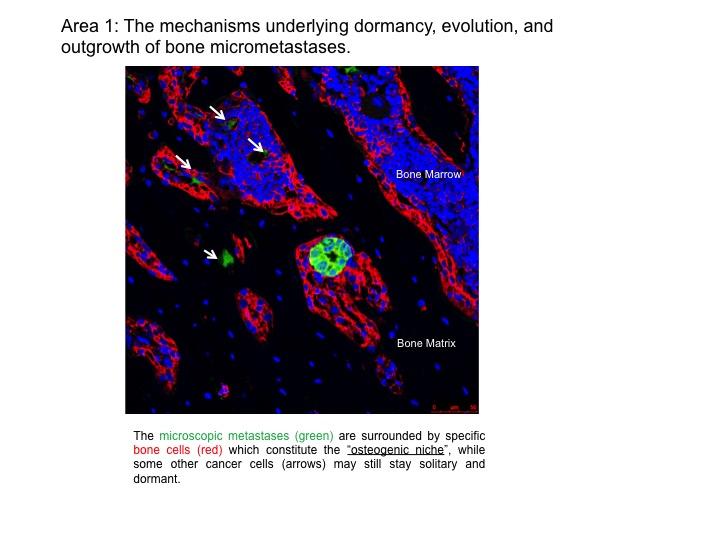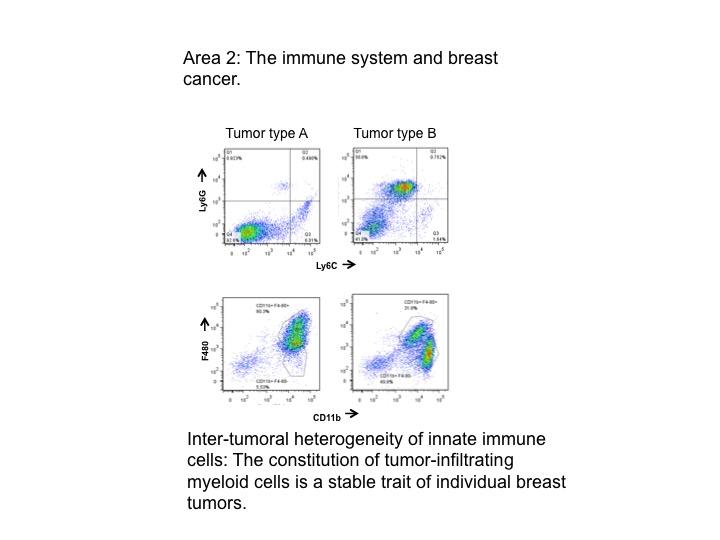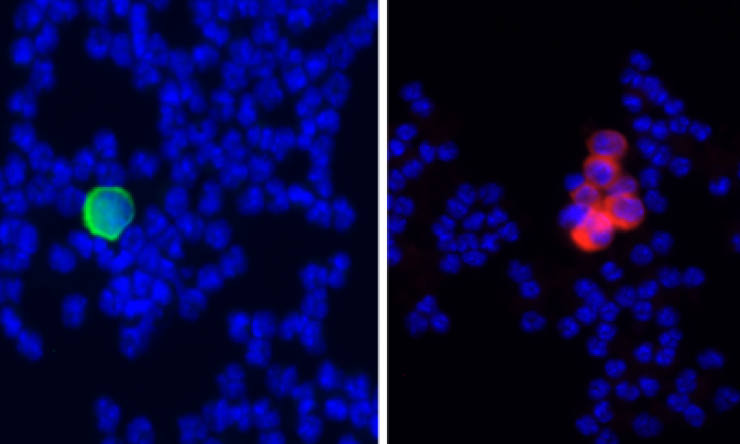
Group photo of the Xiang Zhang lab members.
About the Lab
The Xiang Zhang Lab investigates biological mechanisms and therapeutic strategies of breast cancer metastasis. The lab is currently investigating early-stage bone colonization of disseminated breast cancer cells and breast cancer-induced immunosuppression. The following are the two areas of research for the Zhang Lab:
Mechanisms Underlying Dormancy, Evolution and Outgrowth of Bone Micrometastases

One of the major objectives of the Zhang Laboratory is to elucidate biological mechanisms underlying breast cancer metastasis, and design therapeutic strategies accordingly. The majority of breast cancer patients do not have detectable metastases when first presented in the clinic. Primary tumors are removed soon after diagnosis, leaving patients “disease-free” usually for years to decades. However, in many cases tumors will recur to distant organs, suggesting that dormant or indolent microscopic metastases (micrometastases) persist after surgeries and adjuvant therapies. Thus the important questions of how to recognize patients carrying these micrometastases and how to prevent them from outgrowing will need to be addressed in order to identify novel therapeutic strategies. However, a critical barrier to the progress of the field is the lack of knowledge about these microscopic cancer lesions. We will specifically focus on micrometastases in bone, an organ most frequently affected by breast cancer metastasis. Toward this end, we have developed a set of unique techniques and experimental models that allow us to inspect, extract, and monitor microscopic metastases in bone.
Immune System and Breast Cancer

The immune system is the major defense against tumorigenesis and tumor progression. However, many tumors acquire the ability to blunt or even invert the functions of the immune system. We are interested in the question of how breast cancers evolve to induce dysfunctions of the immune system both systemically and locally. In particular, we aim to delineate how this is happening in the context of inter- and intra-tumoral heterogeneity. The questions we are trying to attack include: 1) how the systemic and local immune environment varies among tumors of diverse genetic/epigenetic background; 2) how to identify the critical immune cell types/functions in a specific tumor context; and 3) how different tumors evolve dependencies on specific immune cells. Our ultimate goal is to identify therapies that could restore the normal functions of the immune system.
New bone-in technique tests therapies for breast cancer metastasis
Watch the video to learn about recent research of the Zhang Lab.
Cancer Metastasis
The single cell and the cluster, what makes one better than the other at cancer metastasis? The researchers found that clusters of tumor cells are more resistant than single tumor cells to being killed by natural killer (NK) cells.
Tumor microenvironment study may improve cancer therapy
View article to see how the Zhang lab contributed to this research.
Grant Recipient
Dr. Xiang Zhang awarded Department of Defense grant for breast cancer research











